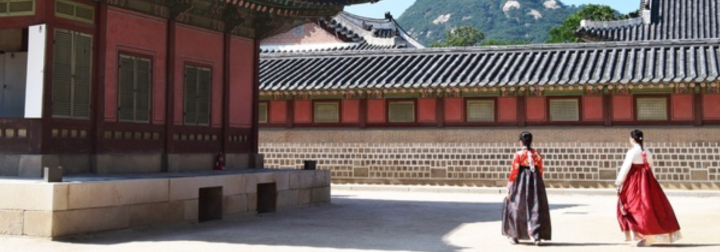Go Abroad Competition Winners
Every year, students who go abroad through exchanges or short term international experiences are invited to take part in a competition showcasing their experiences. Check out the winning entries – maybe you’ll be inspired to go abroad too!
Photo category: Devon Elizabeth Barnett – South Korea and Japan

Written Word category: Rose Whitty – Italy (through the Edinburgh University archaeological field school)
The Swing of a Pickaxe
Vacone is a tiny town in Italy, in a valley of rolling forested terrain. The roads are narrow and wind their way up and down the slopes, passing rows of pale olive trees, dark hardwoods, and then suddenly emerging into bright sunlight with the view stretched out below. Yellow villas peep out from among the orchards, walled towns top the hills like crowns, and the brilliant sun beats down, tinting the scene a shade of sepia.
This is where I spent three weeks of my summer, excavating a Roman villa overlooking the picturesque landscape of central Italy. I and twelve other students would wake in the morning at the unholy hour of six thirty, to don our muddy steel-toecap boots and head out to site in the cool dawn light. Fuelled by the promise of indescribably good Italian food, we picked and shovelled barrow after barrow of topsoil, until the midday heat became crushing and we were covered from head to toe in dust. It was hard, blistering work in the scorching sun. It was also absolutely incredible.
There’s something intensely satisfying about digging. Seeing the trenches deepen inch by inch, feeling your hands toughen as they adapt to swing of the pickaxe, and ending every day knowing you have worked every muscle; it’s a recipe for contentment. There’s a certain camaraderie to it, too. Living and working alongside great people in an amazing place creates friendships far stronger than you would anticipate.
Most of all, excavating is about the history. Those moments when your trowel exposes a fragment of pottery, or the mortar of an ancient wall. When you gently, painstakingly unearth a piece of patterned stucco, heavy and crumbling in your hands. That is when you realise you’re not just sitting in a hole playing with dirt like some child in a sandpit. You’re holding tangible history in your hands, things that people made almost two millennia before you were born. The stucco I found predated the fall of the Rome; it was buried by the time of Charlemagne; it waited in the ground throughout innumerable wars and festivals, reigns of monarchs and passing of seasons, until the day we lifted it out into the sunlight again.
Vacone is a beautiful place in a stunning country, and if I close my eyes I can still see the shapes of the hills and the delicate lines of olive trees. Going there increased my confidence – I feel my horizons have been thrown wide open by the experience. The friends I made have stayed with me, as have the memories of visits to Rome, Orvieto, and sleepy Italian villages. Most of all, however, what I remember is that sense of history as a concrete object, of the past at my fingertips. As a historian it’s sometimes easy to forget that the people we study were once truly alive, but now I’ve seen proof. Experiencing archaeology this way has changed my perspective irrevocably for the better.
Rose Whitty
Video category: Shauna Caskie – Tanzania (through the Widening Horizons summer programme)
Feeling curious? Learn more about your options on the Go Abroad website:

